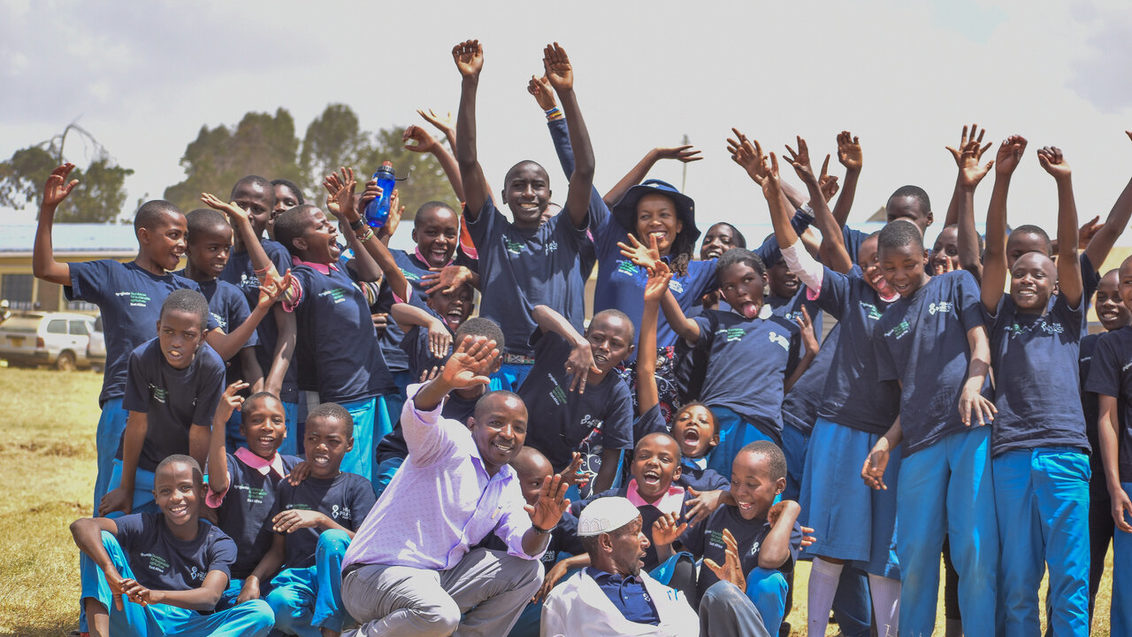Pupils get climate-smarter, for now and beyond

We promote climate-smart, resilient agriculture in all our programs. One way is by hosting field days and training sessions. In Kenya, smallholders and school pupils benefit together. The Human Practice Foundation and our Seeds2B PASTTA project* team collaborate closely here.
Smallholders are particularly vulnerable to extreme weather and climate change. Flooding, freezing or drought can destroy entire harvests. Weather swings also makes for volatile prices. The result is increasing insecurity – nutritional and financial. Climate-smart, resilient agriculture helps farmers to be as prepared as possible.
Our Kenyan field days introduce smallholders to a range of technologies and techniques. These include water-harvesting and drip irrigation. “They also get access to new varieties of potatoes, beans and vegetables”, says our Monitoring & Evaluation Officer, Stephen Okeyo. These varieties cope better with disease and drought than the seeds many farmers conventionally use.
“Importantly, however, we don’t stop there”, Stephen adds. “The field days also bring the smallholders together with people who can advise them on related topics.” These experts work in areas such as soil health or insurance, as well as access to finance and markets.
Coming together for Kenya
As with some other parts of our seeds program, our collaboration with the Human Practice Foundation (HPF) is also special because it involves rural schools. HPF has been working in several counties since 2017. The Danish-based organization puts a strong focus on improving school facilities and feeding pupils. It has also linked up with the Kenyan network of 4K Clubs. These provide school students and their farming parents with training on good agricultural practice. In Kiswahili, “4K” stands for Kuungana, Kufanya, Kusaidia Kenya. This loosely translates into “coming together to act and help Kenya”.
Our local Project Officer Patrick Matua explains the link: “We’ve set up four model farms. These allow the students to put into practice what they learn in theory. These young people can help their parents today and then possibly train to be tomorrow’s agronomists.”
Improving smallholders’ practices increases the likelihood of good harvests. They and their families can thus enjoy more of their own food. But participating pupil Lilian Mwenda knows it means more than that: “We have now got the best method of farming and that has increased our income.” Extra household cash is frequently first invested in school fees.
“Our partnership with HPF therefore encourages a positive educational circle”, notes our East African Director, Lucy Kioko. “The more that pupils can help improve farming, the more schooling their parents can afford. We want to continue working together to change the agricultural sector, one youth at a time, one school at a time!”
*PASTTA is our Partnership for Seed Technology Transfer in Africa with USAID. It primarily focuses on transferring seed-related technologies to smallholders, to increase their harvests and income.
